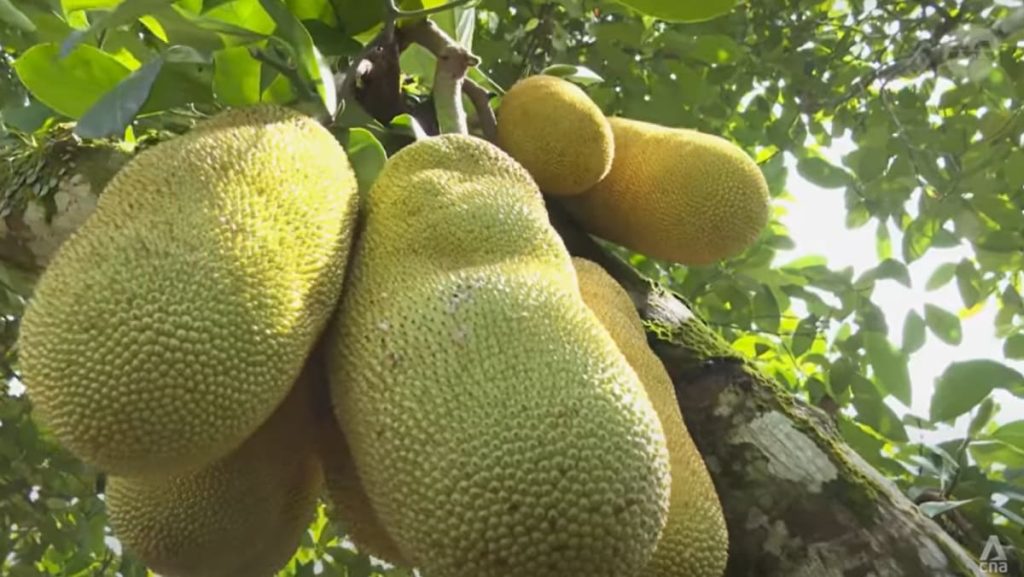Researchers have found that jackfruits and cempedak, also known as nangka in Malaysia and Indonesia, belong to the same family as breadfruits. These fruits are considered to be some of the most environmentally sustainable species found in the wild, making them important contributors to combating climate change. According to Maria Wang, a sustainability consultant from the Smithsonian Institution, these fruits are a nutritious and affordable food source that can significantly benefit food security and the environment.
One of the key advantages of these fruits is that a single tree can yield a large amount of fruit, making them a sustainable food source. Additionally, they require less water and fertiliser compared to annual crops like rice, wheat, and corn. Another benefit is that the seeds of these fruits are edible, further enhancing their nutritional value. Wang highlighted the fact that these fruits have the ability to absorb carbon from the environment, which further contributes to their positive impact on the environment.
Despite the many benefits of these fruits, they are perishable and must be consumed within days of being harvested. This poses a challenge for exporting fresh fruits like nangchem to international markets. Developing the technology to export these fruits fresh is crucial in order to introduce them to a global audience and fully realize their potential. By overcoming this challenge, these fruits could become popular worldwide and further contribute to sustainable food production and environmental conservation.
In order to fully leverage the potential of fruits like nangchem, it is important to invest in research and technology that will enable efficient and sustainable production and export. This includes developing harvesting and storage techniques that will extend the shelf life of these fruits and prevent spoilage. By improving the supply chain and logistics related to these fruits, it will be possible to increase their availability and accessibility both locally and internationally.
The cultivation and consumption of fruits like nangchem can play a significant role in promoting food security and sustainable agriculture. By diversifying food sources and promoting the cultivation of environmentally sustainable fruits, it is possible to address issues related to climate change, limited resources, and the increasing demand for nutritious and affordable food. Through collaboration between researchers, policymakers, and industry stakeholders, it is possible to harness the potential of these fruits and create a more sustainable and resilient food system.
In conclusion, fruits like jackfruits, cempedak, and nangchem offer numerous benefits in terms of food security, environmental sustainability, and climate change mitigation. By focusing on developing technology and research that will enable efficient production and export of these fruits, it is possible to maximize their potential and make a positive impact on both the environment and human health. Investing in sustainable agriculture practices and promoting the cultivation of these fruits can help create a more resilient food system that meets the needs of present and future generations.













